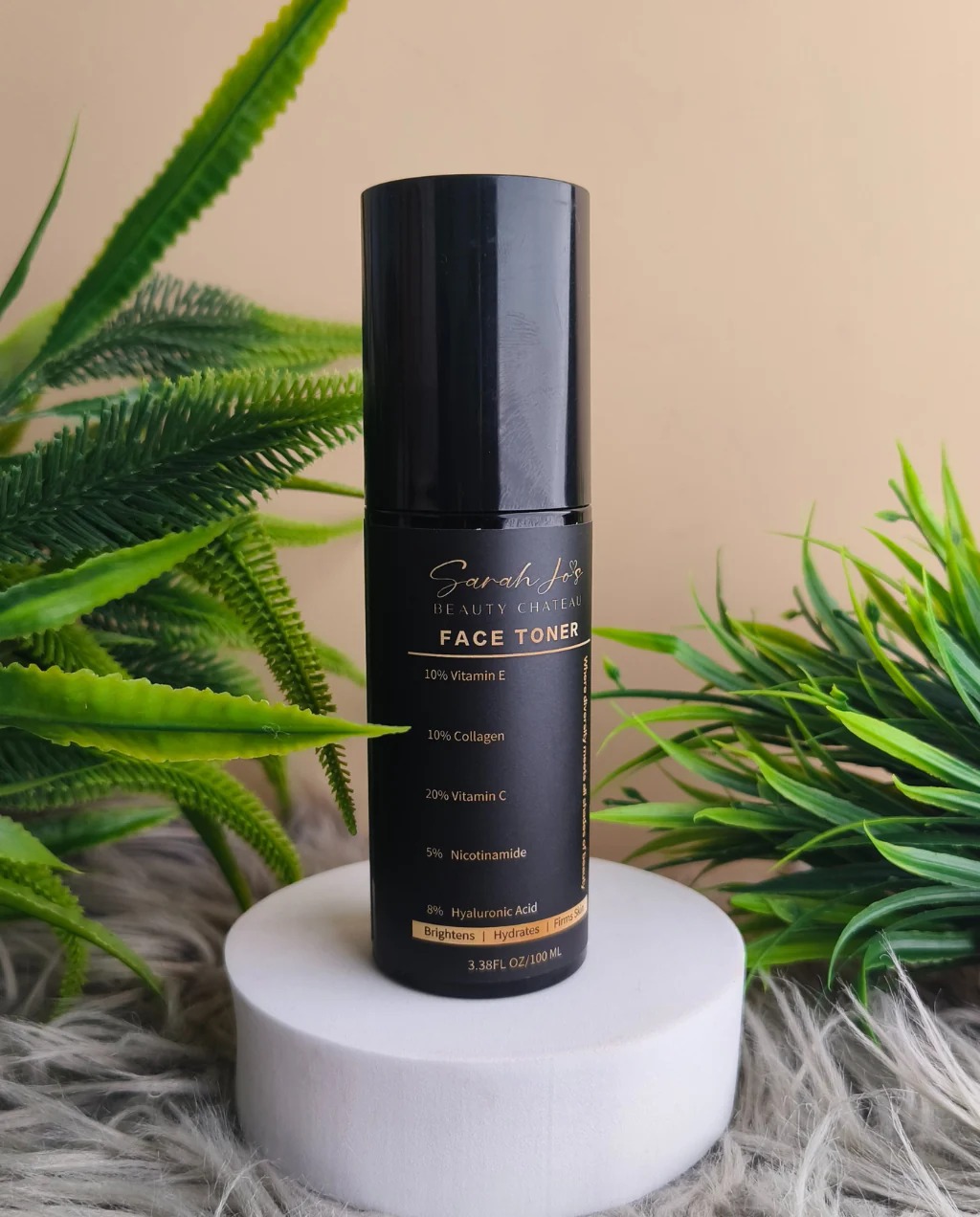
In recent years, the beauty industry has faced an awakening regarding the environmental impact of its products and practices. As more consumers prioritize sustainability, eco-consciousness is becoming central to skincare, hair care, and self-care routines. Hair oils, for instance, are among the many beauty staples that often have hidden environmental costs associated with their production, sourcing, packaging, and disposal. While these oils offer transformative benefits for hair, the journey from source to shelf can sometimes leave a significant carbon footprint. By understanding the environmental impact of hair oils and embracing sustainable alternatives, consumers can enjoy the benefits of these products without compromising the planet.
Interestingly, face toner and hair oil share a similar journey toward eco-conscious reform, as both products now offer greener, more sustainable options. This blog post will explore the environmental impact of conventional hair oils, introduce sustainable alternatives, and provide actionable steps for embracing eco-friendly hair care practices.
Understanding the Environmental Impact of Hair Oils
The environmental footprint of hair oils begins long before they reach our bathroom shelves. Here’s a breakdown of the main factors contributing to the ecological impact of conventional hair oils:
1. Resource-Intensive Sourcing
Many popular hair oils—like argan, coconut, and palm oils—are derived from resource-intensive crops. For instance, argan oil is extracted from the nuts of the argan tree, which grows in limited regions, primarily in Morocco. The production process requires a large number of nuts and significant labor, leading to issues around resource depletion and environmental strain. Similarly, coconut oil production often involves deforestation, threatening ecosystems and wildlife.
Palm oil, another common ingredient in hair and skincare products, has been linked to severe deforestation and loss of biodiversity. Palm oil plantations are a leading cause of deforestation in countries like Indonesia and Malaysia, impacting endangered species like orangutans and tigers. This underscores the importance of sourcing hair oils sustainably to reduce deforestation and protect biodiversity.
2. High Water and Energy Consumption
The extraction and refinement processes for many hair oils can be water- and energy-intensive. From cultivation to cold-pressing and refining, these processes can contribute to water scarcity and increased carbon emissions. Particularly in regions where water resources are limited, the high demand for irrigation can exacerbate environmental challenges.
3. Chemical Additives and Formulations
In some cases, hair oils are mixed with synthetic additives, fragrances, and preservatives. These chemical additives often don’t break down easily, leading to water pollution when washed off. The accumulation of such chemicals can have long-term effects on aquatic ecosystems, affecting fish, marine life, and even the quality of our drinking water.
4. Non-Recyclable Packaging
A significant environmental concern in the beauty industry is the widespread use of plastic packaging. Hair oils often come in plastic bottles or non-recyclable containers. While some companies are making strides toward using glass or recycled materials, plastic remains prevalent. These containers, when not recycled, can take hundreds of years to decompose, polluting landfills and oceans.
Embracing Sustainable Alternatives for Hair Oils
The good news is that there are sustainable alternatives and eco-friendly practices for those who wish to reduce their environmental footprint. By choosing ethically sourced, sustainably packaged, and organic hair oils, we can support eco-conscious beauty practices that benefit both our hair and the planet.
1. Look for Certified Organic and Ethically Sourced Oils
One of the most impactful ways to support sustainable hair oils is to look for products with certifications, such as USDA Organic, Fair Trade, or RSPO (Roundtable on Sustainable Palm Oil) certification. These labels indicate that the oil has been produced using methods that prioritize the environment and fair working conditions.
For instance:
- Organic Argan Oil: Look for products that are certified organic and sourced from cooperatives in Morocco that practice sustainable harvesting.
- Fair Trade Coconut Oil: Choose brands that source from small farms practicing sustainable agriculture without causing deforestation.
- RSPO Certified Palm Oil: If you must use a product with palm oil, look for RSPO-certified options to ensure it’s sustainably sourced.
2. Explore Multi-Functional Oils
Instead of using separate products for different needs, consider multi-functional oils that can serve as both hair and skincare products. Some oils, such as jojoba or rosehip oil, work well on both hair and skin, reducing the need for multiple products. Just as a face toner can double as a skin refresher throughout the day, multi-functional oils help streamline your routine and minimize waste.
3. Choose Eco-Friendly Packaging
Brands are increasingly offering hair oils in recyclable or biodegradable packaging, such as glass bottles with minimal plastic components. Some companies even use post-consumer recycled materials or biodegradable packaging to reduce their carbon footprint. When purchasing hair oils, opt for brands that prioritize sustainable packaging solutions.
4. DIY Hair Oils with Sustainable Ingredients
Making your own hair oil blend using sustainable ingredients can reduce your environmental impact and allow you to customize your formula. Ingredients like organic olive oil, jojoba oil, and almond oil are more readily available and often have lower environmental impacts compared to more exotic oils. Combining these oils with essential oils like rosemary or lavender creates a powerful, natural hair treatment that’s both eco-friendly and effective.
Tips for Eco-Friendly Hair Oil Usage
Using hair oils responsibly can also make a significant difference in their environmental impact. Here are some simple practices to help you embrace eco-conscious hair care:
1. Use Only What You Need
Overusing hair oil can lead to excess product runoff, which eventually goes down the drain and potentially harms aquatic ecosystems. A small amount goes a long way, so start with a few drops and add more as needed. This minimizes waste and prolongs the life of the product.
2. Recycle or Reuse Containers
If you’ve purchased hair oils in recyclable containers, make sure to clean and recycle them after use. Glass bottles can also be repurposed; for example, you could use them to store other DIY beauty concoctions, such as face toner or serums.
3. Opt for Water-Saving Routines
Since hair oils often require rinsing out, consider using water-saving techniques like shorter showers and washing your hair less frequently. Alternatively, use a dry shampoo or hair refresher to extend the time between washes, which conserves water and reduces environmental impact.
4. Support Brands with Sustainable Practices
By supporting brands committed to sustainability, you encourage the industry to adopt more eco-friendly practices. Look for brands that disclose their environmental impact, use sustainable ingredients, and give back to the environment. Many brands are transparent about their sustainability efforts and may donate a portion of their profits to environmental causes.
Eco-Conscious Hair Oils to Try
Here are some eco-conscious hair oils that emphasize sustainable sourcing, organic ingredients, and environmentally friendly packaging:
-
Osea Essential Hydrating Oil: Made from certified organic, vegan ingredients, this multi-functional oil can be used on hair, face, and body.
-
Cocokind Organic Chia Seed Oil: Rich in omega-3 fatty acids, this organic oil is sustainably sourced and comes in eco-friendly packaging.
-
Earth Tu Face Hair and Scalp Oil: This plant-based hair oil is made from sustainably harvested oils and packaged in glass, minimizing waste.
Broadening Your Eco-Conscious Beauty Routine
Embracing an eco-conscious routine extends beyond hair oils. Incorporating sustainable practices across your beauty regimen, from face toner to moisturizer, can make a big difference. Here are a few steps to consider:
-
Use Multi-Purpose Products: Just as you might use a multi-functional hair oil, consider face toners that offer added benefits like hydration, brightening, or soothing. Multi-purpose products reduce the need for multiple items, which means less packaging and waste.
-
Choose Refillable Beauty Products: Some brands now offer refillable options for products like face toner, shampoo, and conditioner, which reduces the need for single-use packaging.
-
Mindful Purchasing: Quality over quantity is a helpful mantra. Investing in a few, well-sourced, eco-conscious products can help reduce clutter and environmental waste in the long term.
-
Avoid Harmful Ingredients: Products containing parabens, phthalates, and sulfates can have long-term environmental effects. Look for clean beauty brands that exclude these ingredients to make a more positive impact on the planet.












